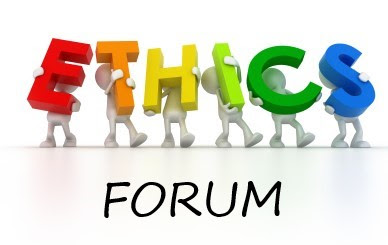by Robert Bachelder
(Mr. Bachelder worked in banking and in was minister of Worcester City Missionary Society (United Church of Christ) in Worcester, Massachusetts. This article appeared in The Christian Century, July 15-22, 1987 pp. 628-630. Copyright by The Christian Century Foundation; used by permission. Current articles and subscription information can be found at www.christiancentury.org.)
This article was prepared for Religion Online by John R. Bushell.
Soon after the financial scandal broke last year involving Ivan Boesky, the Wall Street arbitrager, I spoke with a dean of Harvard University’s Business School at a suburban Boston church. Not wanting to sound moralistic, .I wondered aloud if insider trading in 'securities might be ethically ambiguous since some argue that it promotes market efficiency. To my surprise, this dean of one of, America's educational bastions of capitalism replied sharply with a moralist's simplicity: "There's nothing ambiguous about it. It's illegal and immoral -- sheer greed."
However, something troubled the dean ,even more than financial corruption: At Harvard we had lots of good and thoughtful young people. They would not commit illegal acts in their business. But business education doesn't do a very good job of teaching them how to incorporate values in business.
To help instill values; at an early age, he has been teaching Sunday 'school for a dozen years.
The effect in the past of. the Protestant ethic, observed historian Richard Hofstadter, was to heighten generally the sense of personal responsibility and create a strong sense of civic consciousness. And Henry James, the literary expositor of this sensibility, said that ."responsibility is glory." Not surprisingly, this outlook helped significantly to shape the ethos of American finance.
As economics writer Leonard Silk points out, the 20th-century American establishment is rooted in the19th century Unitarian Church in Massachusetts. The Unitarian clergy reminded the Boston merchants with some success that wealth carries responsibilities as well as privileges. In this they drew, upon their Puritan antecedents. As Cotton Mather told his Boston congregation in 1701:
"God hath made man a sociable creature. We expect benefits from human society, it is but equal that human- society should receive benefits from us. We are beneficial to human. society, by. the works of that special occupation, in which we are to be according to the order of God. ["A Christian at His Calling.".The Annals of America: 1493-1973, Vol. I (Encyclopaedia Britannica, 1976), p. 39]
Uncontrolled land speculation was an issue for the Unitarians. They disliked even legal land speculation since it contributed nothing to the commonwealth, and since success resulted more from luck than from diligent labor. Historian Daniel Howe observes that the Unitarian clergy fomented considerable dissent in Massachusetts against the U. S. annexation of Texas by portraying the Texans as irresponsible speculators who had entered Mexico at their own risk.
Through the 19th century, the Protestant establishment became less ecclesiastical and more secular, but it remained concerned with shaping business by the values of service and disinterestedness. Quite a few of the establishment were sons of New England ministers, and many more mere educated. in. New England church schools and colleges. As Silk suggests, the- Unitarian heritage helped form the basis for the modern social responsibility creed that David Rockefeller articulated in the 1970s as business being a "public mission" with public responsibilities. Of course,- the Protestant establishment's practice always fell short of its professed moral standards: the decline of the Puritan ethic into an, ethic of individualist capitalism has been well chronicled. After a visit to New York, the English novelist Anthony Trollope wrote in 1857 in Barchester Towers that everyone "worships," the dollar. Twelve years, later, Jay Gould and James Fisk perpetrated, the great gold conspiracy. And -the crash of , 1929 was abetted by Wall Street's financially irresponsible practices.
Whatever the moral failures or outright hypocrisy of the old establishment, however, Wall Street's current ethos is even more lamentable. Today, moral aspirations themselves are rejected as being worthy subjects for business enterprise. In the Reagan era, extreme free-enterprise ideology, which has always been popular with entrepreneurs and small business people, is staging a takeover of the more exalted bastions of American finance. This stringent creed, eschewing mention of responsibility and social obligation, maintains that the only way to run a business (or even a country) is to concentrate on maximizing profits in the near term. It has found some of its more fervent apostles among the younger investment bankers.
The more profound implications of this development, however, have been overlooked for the most part. The elder investment bankers are appalled that younger members of the fraternity who are already making $1 million a year, such as the convicted insider trader Dennis Levine of Drexel Burnham Lambert, are trying to make even more through illegal insider trading. How can they be so greedy? the elders ask. Currently, the financial periodicals are printing jeremiads about the destructiveness of greed. But greed is not the feature of financial life that should worry us most. We can survive greediness. The quintessential financier J. P. Morgan was probably as greedy as is anyone on Wall Street today. He took a lot from society, but he left even more.
Within a few years he created U.S. Steel Corporation, General Electric and International Harvester, all of which produced many jobs and contributed to the commonwealth. In contrast, today's rash of takeovers has little such value.
Read it all here.

No comments:
Post a Comment